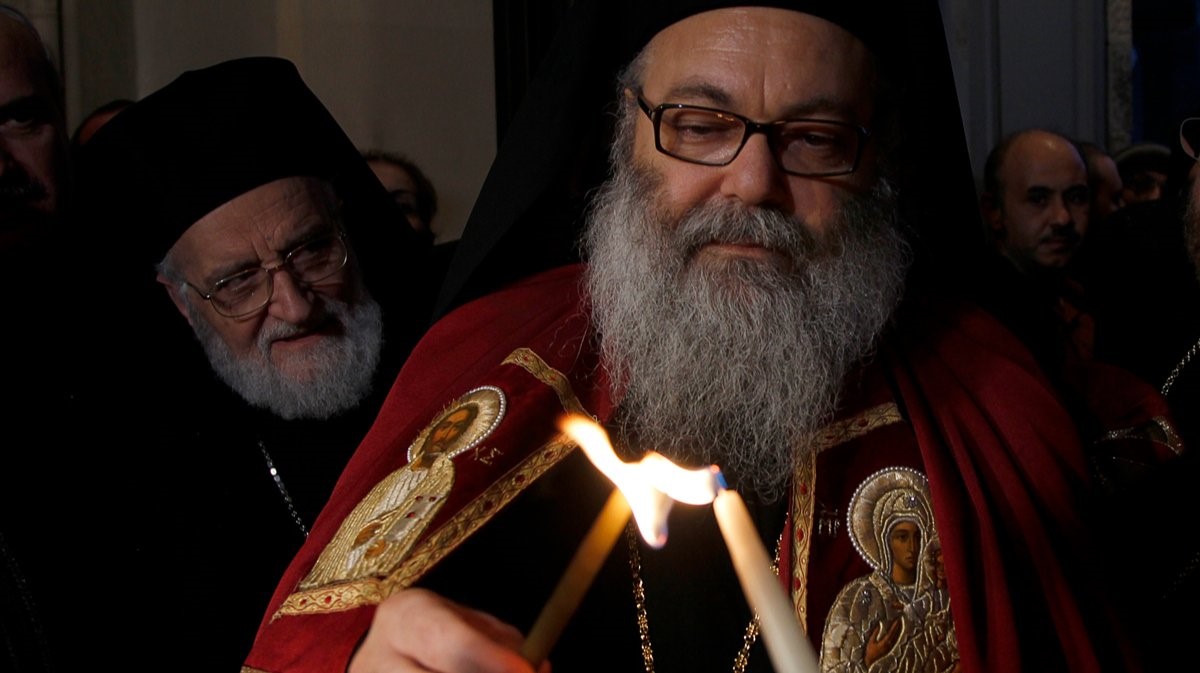Ancient Antioch after Assad
The fall of the regime in Damascus has also led to a backlash against the Orthodox patriarchate heir to one of the most important seats of ancient Christianity by a mysterious movement sympathetic to the new Islamist regime which - amid accusations of collaborationism and old scores - is calling for the resignation of Ioann X. In the background are relations with Moscow with which this Church remains linked, though without having broken with Constantinople.
Moscow (AsiaNews) - The fall of the regime of Bashar al Assad has caused telluric movements in the Orthodox Patriarchate of Antioch, the easternmost of the “apostolic pentarchy” of the first centuries of Christianity, which is now based in Damascus. A “Movement for Antiochian Changes,” composed of Christians sympathetic to the new Islamist regime, has also formed, which would demand the resignation of pro-Russian Patriarch Ioann X (Yazigi), who is accused of “being tainted in collaborating with the regimes of Assad and Putin.”
It is unclear who the anti-patriarchal movement really represents, but the reaction in the Syrian press demonstrates its ability to influence the internal balances in the ecclesiastical and social worlds, considering also the patriarchate's difficulties in establishing a dialogue with the new power in Damascus. The legitimacy of Ioann X's role, after all, had already been questioned at his election in 2012 because he was accused of violating certain provisions of the statute of the Antiochian Church, according to which candidates for the patriarchal throne could only be metropolitans with at least five years since their appointment, while Yazigi was a few months away.
The synod changed the statute as early as the election, and the Assad government immediately confirmed these changes, emphatically welcoming the election of Ioann X. The patriarch's opponents had to swallow the toad, which is now being thrown back into the fray, accusing the patriarchate of allowing Assad to meddle in the internal affairs of the Church, which would thereby “lose its independence,” and the Syrian Orthodox “confidence in their spiritual leaders.”
Ioann recently turned 69, and hails from the northwestern province of Latakia, the homeland of the Assad clan, where Russian military bases are also located. In 2013 the patriarch's younger brother, then Aleppo Metropolitan Pavel (Yazigi), was kidnapped along with Archbishop of the Syrian-Jacobite Church Mar Grigorios Ioann Ibrahim. Their fate remains unknown to this day, although they were said in the local press to have been killed by Isis terrorists, opponents of Assad.
Four days after Assad fled to Moscow, where he was granted political asylum, Ioann X traveled to the Russian capital in turn, meeting Patriarch Kirill (Gundjaev) who expressed to him all solidarity for “the suffering Syria is currently undergoing.” From the Moscow Patriarchate came calls to militarily counter Islamist forces, when the capital Damascus had not yet been conquered, otherwise Russia would “lose its status as a Katekhon, ” i.e., as a universal embankment against evil, as stated by Protodeacon Vladimir Vasilik, a professor at the St. Petersburg Theological Academy. Failure to defend the Assad regime, in his view, would result in a “shameful defeat in Ukraine as well, because of the refusal to defend Christians anywhere in the earthly sphere.”
Before the war-which has many leaving the country-Christians constituted 5-6 percent of Syria's more than 20 million inhabitants; among them, the majority are the Arabic-speaking Orthodox of the Antioch Patriarchate, about half a million faithful, led by ethnic Greek hierarchs. Under Assad, Christmas and Easter were observed as the state's national holidays, while this year on Christmas Eve was Ioann X's first contact with Dr. Abu Omar, a member of the interim government, who conveyed the new leader Al-Jolani's good wishes, which assured “respect for the rights of Christians” in Syria.
The Patriarchate of Antioch remains in suspense politically and also ecclesiastically, being the only Church that explicitly supports Moscow, without, moreover, having severed relations with Constantinople, against the backdrop of the recognition of Kiev's autocephaly. And if the country were to undergo decisive Islamization, it cannot be ruled out that the ancient Antiochian see might move in other directions, as has happened several times in history. Perhaps to Lebanon, if not even to Moscow, in the warm embrace of the Third Rome.
07/02/2019 17:28







.png)










